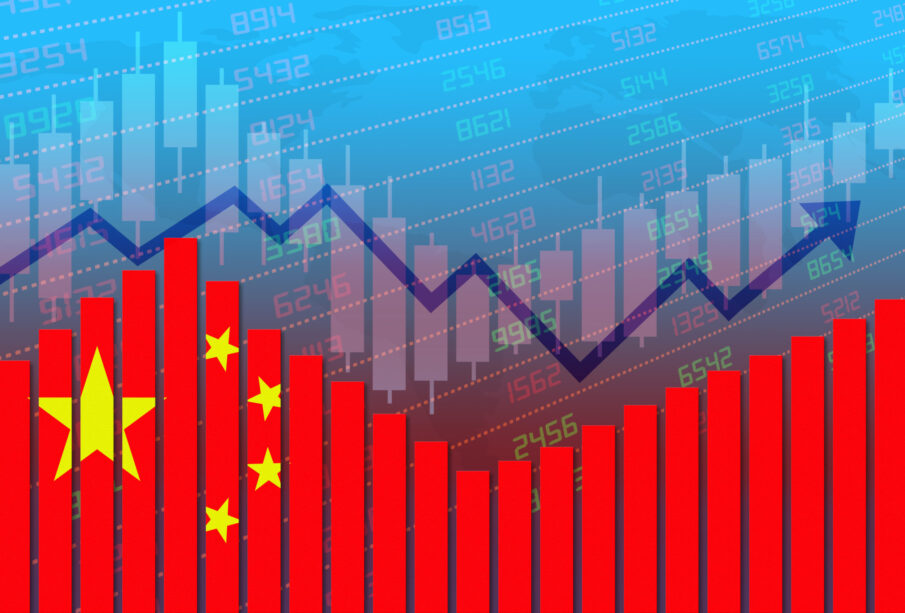Three Factors That Make Investors Concerned About China’s Economic Deflation

While domestic inflation hurts U.S. investors, the second-largest economy in the world is fighting the exact opposite battle in 2023. China’s consumer price index, or CPI, a gauge of inflation, has shown worse-than-anticipated growth or flat readings for the majority of this year. Consumer prices in the nation decreased by 0.3% in July when compared to the same month last year, but they slightly increased by 0.1% in August. Many people were concerned that prices may return to deflation after economists predicted that China’s September CPI report would show modest but positive pricing increase. However, statistics released on October 12 showed a flat reading.
The second-largest economy in the world, China’s GDP is projected to reach $17.9 trillion in 2022. With an average annual GDP growth rate of over 9% since 1978, China has also been a significant contributor to global economic growth for many years. However, rigorous COVID-19 lockdowns and limitations in China caused that outstanding economic growth to slow to barely 3% in 2022. Once the lockdowns were lifted in 2023, economists predicted that China’s economy would quickly return, but thus far, reality has lagged far behind predictions. China announced 6.3% year-over-year GDP growth in the second quarter in July; this figure benefited from comparisons to the dreadfully low levels of 2022. That growth was far lower than the 2.2% quarterly growth in the first quarter, representing only a 0.8% gain on a quarterly basis.
The Chinese economy has been hampered by weak domestic demand and a declining housing market, and U.S. investors are keenly watching economic statistics to avoid a potentially dangerous situation.
Chinese Inflation Matters to Investors for Three Reasons
Given that the U.S. economy grew by 2.1% in the second quarter and the stock market has fared well so far this year, American investors may be tempted to dismiss China’s economic difficulties. But many investors must consider bigger ramifications of China’s economic issues.
Effects on the World Economy
Fifty years ago, Americans could make the argument that deflation in China’s economy was China’s problem. In 2023, it’s an entirely different story.
Inbok Song, portfolio manager at Matthews Asia, says U.S. investors should pay attention to China because of how much the U.S. and Chinese economies are intertwined.
“For the U.S. investors, the status of the Chinese economy is important as China continues to be a major trading partner for the U.S. in terms of goods and services, both imports and exports,” Song says.
As of August 2023, China was the third-largest U.S. trading partner behind only Mexico and Canada, representing about 10.9% of total U.S. trade, according to the U.S. Census Bureau.
Jeff Rose, founder and CEO of GoodFinancialCents.com, says the modern global economy is so interconnected that stability in all the largest economies are important to financial markets.
“China is a significant player in the world market, and its economic health can influence global trade, investment flows and commodity prices,” Rose says.
For example, China imports about 70% of the global share of traded iron ore, 72% of aluminum, and 60% of copper and soybeans. It also imports more than 25% of the global share of traded crude oil and consumes more than 50% of the global production of coal, according to a report from J.P. Morgan.
Potential Risks and Opportunities for U.S. Investors
Deflation and economic weakness in China create obvious risks for U.S. investors exposed to Chinese stocks or emerging market exchange-traded funds, such as the iShares China Large-Cap ETF (ticker: FXI).
Rose says there are several types of U.S. asset classes that could be at risk if China’s economy stalls.
“For U.S. investors, especially those with international portfolios, China’s deflation could impact the performance of various investments, including international stocks, mutual funds and certain sectors that are closely tied to China’s economy, like manufacturing and technology,” Rose says.
Song says economic instability in China could have a severe effect on U.S. Treasury bonds if China ramps up its selling of U.S. bonds.
“Although China has been reducing its U.S. Treasury holdings since 2012 to diversify their foreign reserves, China is still the second-largest foreign holder of U.S. Treasurys after Japan,” Song says.
There are also ways for investors to potentially profit from a Chinese economic downturn, including inverse ETFs, such as the ProShares Short FTSE China 50 (YXI).
Potential Conflict Between China and Taiwan
Finally, governments throughout history have used military conflicts as a means of economic stimulus and as a political distraction during difficult times. Tensions between China and Taiwan have been rising, and if China chooses to launch a military conflict with Taiwan, it could have major implications for the U.S. economy.
Taiwan currently produces about 70% of the world’s semiconductors and about 90% of the most advanced chips used for applications such as cloud computing and artificial intelligence. A disruption of chip production in Taiwan could have a disastrous impact on the technology sector and the U.S. economy as a whole.
Conclusion: Why Investors Should Monitor China’s Economic Deflation
American investors are dealing with their own struggles with inflation, making it easy to ignore China’s deflationary battle across the Pacific. However, the U.S. and global economy rely heavily on China, so Chinese deflation could have a negative effect on global commodity demand, the U.S. Treasury market and even the high-end semiconductor industry.
With that in mind, investors will be hoping to see a return to positive growth when the National Bureau of Statistics of China reports its CPI reading for October. Further flat or near-flat CPI numbers could augur very real risks of deflation, which can be a self-perpetuating loop as consumers delay spending and wait for lower prices in the future.






